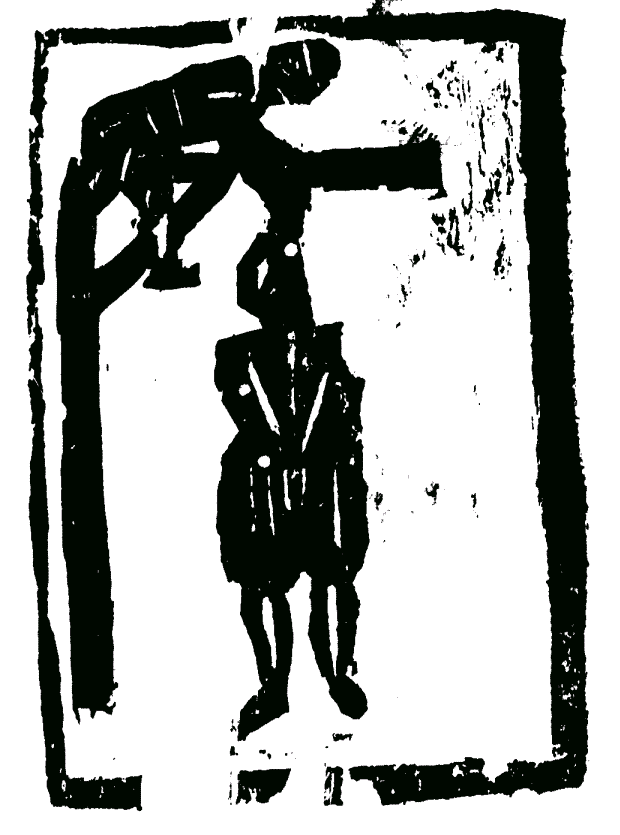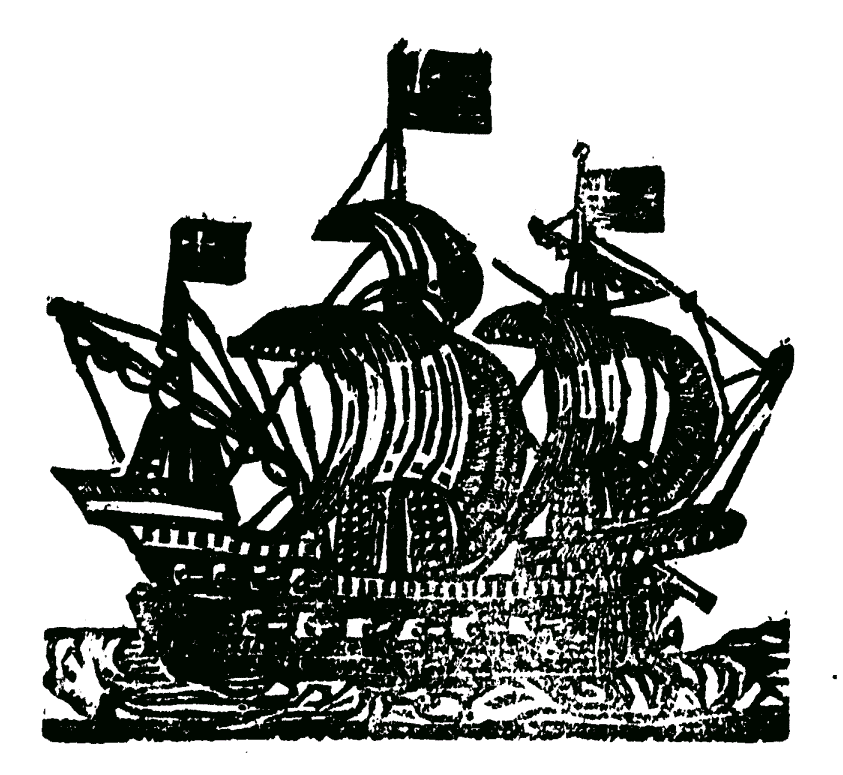


|
The Campden Wonder |

|
||
| "Time, the great Discoverer of Truth, shall bring to Light this dark and mysterious Business" | ||||
|
|
|
|
|
|
Published by Charles Tyus, London (1662?)
This splendidly illustrated document is housed in the Bodleian Library, Oxford, catalogue under reference Wood 401 (191).
A facsimile of the ballad can be seen on the Bodleian site at:
The full text is transcribed below.
Truth
brought to Light:
OR,
Wonderful
strange and true news from Gloucester shire, concerning one Mr. William
Harrison, formerly Stewart to the Lady Nowell of Cambden, who was supposed to be
Murthered by the Widow Pery and two of her Sons, one of which was Servant to the
said Gentleman. Therefore they
were all three apprehended and sent to Gloucester Goal, and about two years
since arraigned, found guilty, condemned, and Executed upon Broadway hill in
sight of Cambden, the mother and one Son being then buried under the Gibbet, but
he that was Mr. Harrisons Servant, hanged in Chains in the same place, where
that which is remaining of him may be seen to this day, but at the time of their
Execution, the said Mr.
Harrison was not dead, but ere seven years were over should be heard of
again, yet would not confess where he was, but now it appears the Widow Pery was
a witch, and after her Sons had robd him} and cast him into a Stone Pit, she by
her witch.-craft conveyed him upon a Rock in the Sea near Turky, where he
remained four days and nights, till a Turkish Ship coming by took him and sold
him into Turky, where he remained for a season, but is now through the good
providence of God returnd again safe to England, to the great wonder and
admiration of all that know the same. This is undenyably true, as is
sufficiently testified by Inhabitants of Cambden, and many others thereabouts.
To
the Tune of, Aim not too high.
Amongst
those wonders which on earth are shown,
In
any age there seldom hath been known,
A
thing more strange then that which this Relation,
Doth
here present unto your observation.
In
Glocestershire as many know full well,
At
Cambden Town a Gentleman did dwell,
One
Mr. William Harrison by name,
A
Stewart to a Lady of great fame.
A
Widdow likewise in the Town there was,
A
wicked wretch who brought strange things to pass,
So
wonderful that some will scarce receive,
These
lines for truth nor yet my words believe.
But
such as unto Cambden do resort,
They
surely found this is no false report,
Though
many lies are dayly now invented,
This
is as true a Song as ere was Printed.
Therefore
unto the story now give ear,
This
Widow Pery as it doth appear,
And
her two sons all fully were agreed,
Against
their friend to work a wicked deed.
One
of her sons even from a youth did dwell,
With
Mr. Harrison who loved him well,
And
bred him up his Mother being poor,
But
see how he requited him therefore.
For
taking notice that his Master went,
Abroad
to gather in his Ladies rent,
And
by that means it was an usual thing,
For
him great store of money home to bring.
He
thereupon with his mischevous mother,
And
likewise with his vile ungodly Brother,
Contriv'd
to rob his Master, for these base
And
cruel wretches were past shame and grace.
One
night they met him comming into Town,
And
in a barbarous manner knockt him down,
Then
taking all his money quite away,
His
body out of sight they did convey.
But
being all suspected for this deed,
They
apprehended were and sent with speed,
To
Glocester Goal and there upon their Tryal,
Were
guilty found for all their stiff denyal.
The
second part to the same Tune.
It
was supposed the Gentleman was dead,
And
by these wretches robd and Murthered,
Therefore
they were all three condem'd to death,
And
eke on Broadway-hill they lost their breath.
One
of the Sons was buried with his Mother,
Under
the Gibbet, but the other Brother,
That
serv'd the Gentleman was hang'd in Chains,
And
there some part of him as yet remains.
But
yet before they died they did proclaim
Even
in the ears of those that thither came,
That
Mr. Harison yet living was
And
would be found in less then seven years space.
Which
words of theirs for truth do now appear
For
tis but two year since they hanged were,
And
now the Gentleman alive is found
Which
news is publisht through the Countrys round.
But
lest that any of this truth shall doubt,
Ile
tell you how the business came about.
This
Widow Pery as tis plainly shown
Was
then a Witch although it was not known.
So
when these Villains by their mothers aid
Had
knockt him down (even as before was said)
They
took away his money every whit,
And
then his body cast into a pit.
He
scarce was come unto himself before
Another
wonder did amaze him more,
That
whilst he lookt about,
he
found that he Was suddainly conveyed unto the Sea.
First
on the shore he stood a little space
And
thence unto a rock transported was,
Where
he four days and nights did then remain
And
never thought to see his friends again.
But
as a Turkish ship was passing by
Some
of the men the Gentleman did spy,
And
took him and as I understand,
They
carried him into the Turkish Land.
And
there (not knowing of his sad disaster),
They
quickly did provide for him a Master,
A
Surgeon or of some such like profession,
Whose
service he performed with much discretion.
It
seems in gathering Hearbs he had good skill,
And
could the same exceeding well distil,
Which
to his Master great content did give,
And
pleas'd him well so long as he did live.
But
he soon dyd, and at his death he gave him,
A
piece of plate that so none should enslave him,
But
that his liberty he might obtain,
To
come into his native land again.
And
thus this Gentleman his freedom bought,
And
by a Turky Ship from thence was brought,
To
Portugal, and now both safe and sound,
He
is at length arrived on English ground.
Let
not this seem incredible to any,
Because
it is an end afirmed by many,
This
is no feigned story, though tis new,
But
as tis very strange tis very true. .
You
see how far a Witches power extends,
When
as to wickedness her mind she bends,
Great
is her Malice, yet can God restrain her,
And
at his pleasure let her loose or chain her.
If
God had let her work her utmost spight,
No
doubt she would have kild the man outright,
But
he is saved and she for all her malice,
Was
very justly hang'd upon the Gallows.
Then
let all praise to God alone be given,
By
men on earth as by the Saints in heaven,
He
by his mercy dayly doth befriend us,
And
by his power he will still defend us.
London.
Printed for Charles Tyus at the three Bibles on London-Bridge.